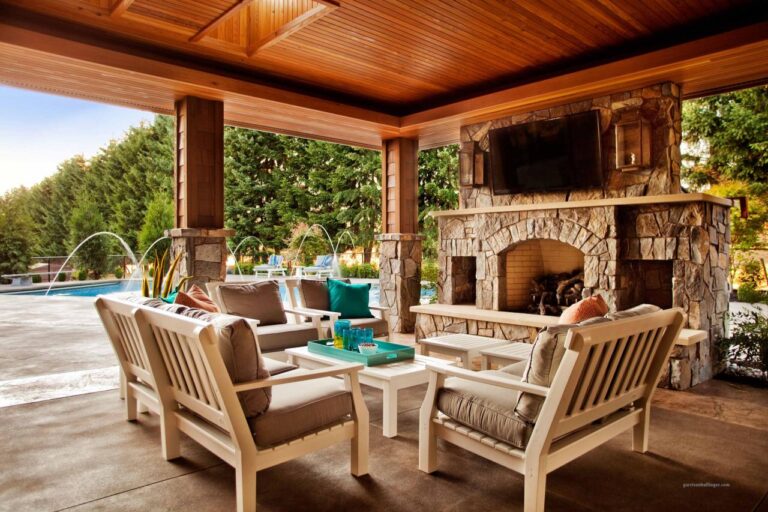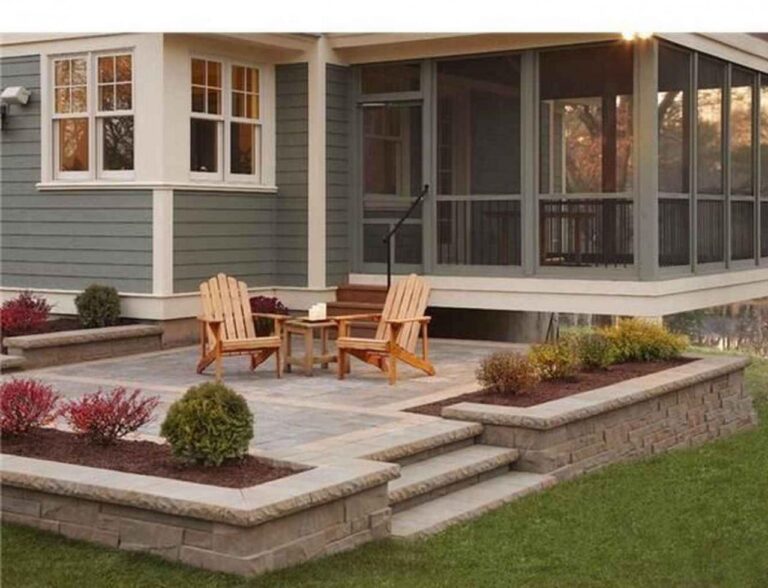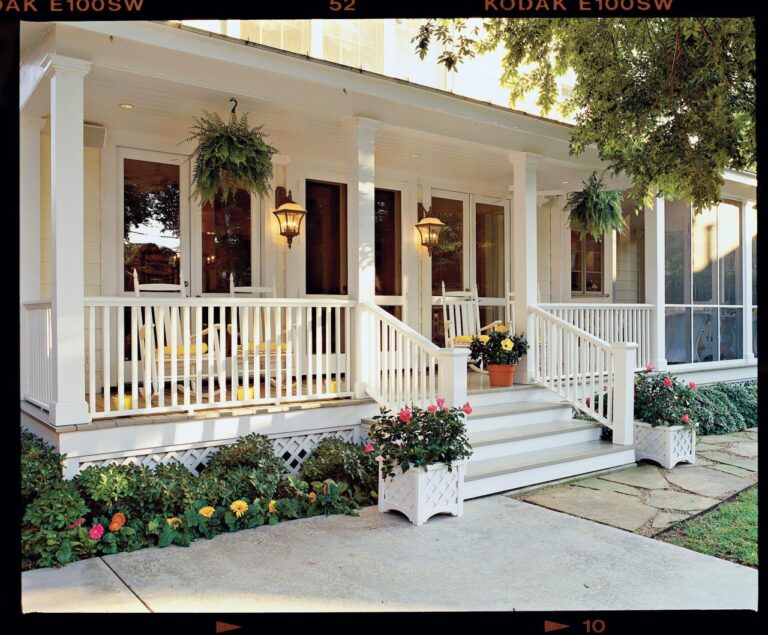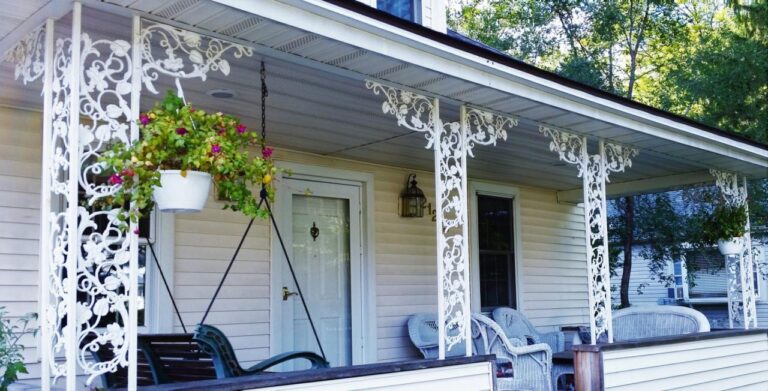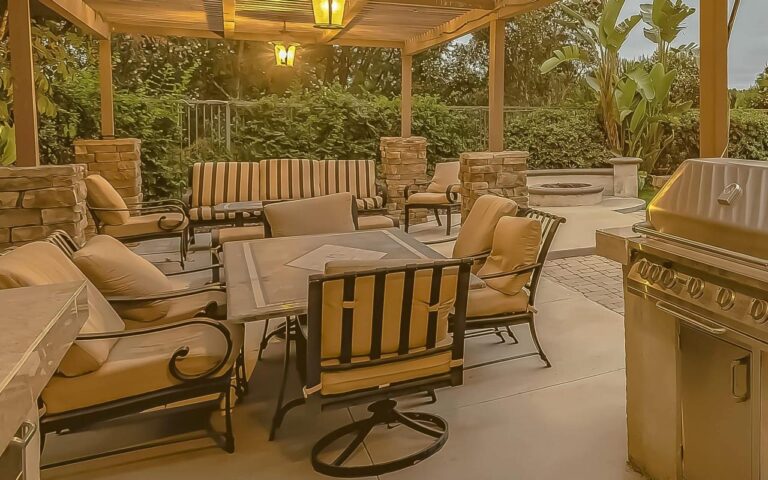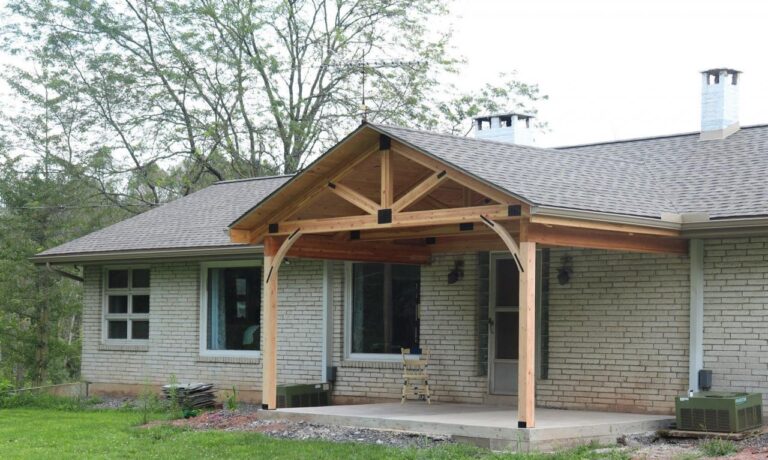Best Porch Design
Best porch design encompasses far more than just a covered area; it’s about crafting an extension of your home that reflects your style and enhances your lifestyle. This guide delves into the crucial aspects of porch design, from selecting the perfect style and materials to incorporating functional elements and ensuring safety. We’ll explore various architectural styles, practical considerations for size and functionality, and the importance of thoughtful material choices to create a truly inviting and durable outdoor haven.
Whether you envision a grand Victorian porch, a minimalist modern retreat, or a charming farmhouse haven, understanding the key design principles and available options will empower you to make informed decisions. We will cover everything from choosing the right decking material and paint colors to selecting comfortable furniture and creating a visually appealing landscape. Our goal is to help you transform your porch into a space where you can relax, entertain, and enjoy the beauty of the outdoors.
Porch Styles & Design Elements: Best Porch Design
A porch’s style significantly impacts a home’s overall aesthetic. Understanding various architectural features and design elements allows for a cohesive and visually appealing outcome. This section explores popular porch styles, ceiling and railing designs, and the strategic use of lighting.
Popular Porch Styles
Several porch styles complement different architectural designs. The choice depends on personal preference and the home’s existing style.
| Style | Architectural Features | Materials | Overall Impression |
|---|---|---|---|
| Victorian | Ornate details, decorative columns, spindles, intricate trim, wide overhang | Wood (often stained dark), wrought iron | Grand, elaborate, romantic |
| Craftsman | Low-pitched roof, exposed rafters, sturdy columns, wide steps, built-in seating | Wood (natural tones), stone | Rustic, handcrafted, welcoming |
| Farmhouse | Simple lines, wide planks, open railings, minimal ornamentation | Wood (painted or stained), metal | Casual, comfortable, relaxed |
| Modern | Clean lines, minimalist design, sleek materials, geometric shapes | Concrete, metal, glass, composite decking | Sleek, sophisticated, contemporary |
Porch Ceiling Designs, Best Porch Design
Porch ceilings contribute significantly to the overall aesthetic and can be designed using various materials and construction methods. Consider these options to enhance your porch’s character.
- Beamed Ceilings: Exposed wooden beams create a rustic or Craftsman feel. These can be stained or painted to match the overall style.
- Vaulted Ceilings: Vaulted ceilings add height and grandeur, particularly suitable for larger porches. They can be constructed using wood, metal, or even drywall.
- Tray Ceilings: These recessed ceilings add visual interest and depth. They can be painted a contrasting color to highlight the design.
- Open Ceilings: Suitable for smaller porches, open ceilings create a sense of airiness and space. They often feature exposed rafters or simple support structures.
Porch Railing Designs
Railings provide safety and enhance the porch’s visual appeal. Material selection and design should complement the overall style.
- Wood Railings: Classic and versatile, wood railings can be stained, painted, or left natural. They suit Victorian, Craftsman, and Farmhouse styles.
- Metal Railings: Durable and modern, metal railings (wrought iron, aluminum, or steel) offer sleek lines and can be powder-coated in various colors. They are suitable for Modern and Victorian styles.
- Composite Railings: Low-maintenance and weather-resistant, composite railings mimic the look of wood without the upkeep. They are a versatile option for any style.
- Glass Railings: Modern and minimalist, glass railings create a sense of openness and unobstructed views. They are best suited for contemporary porches.
Porch Lighting
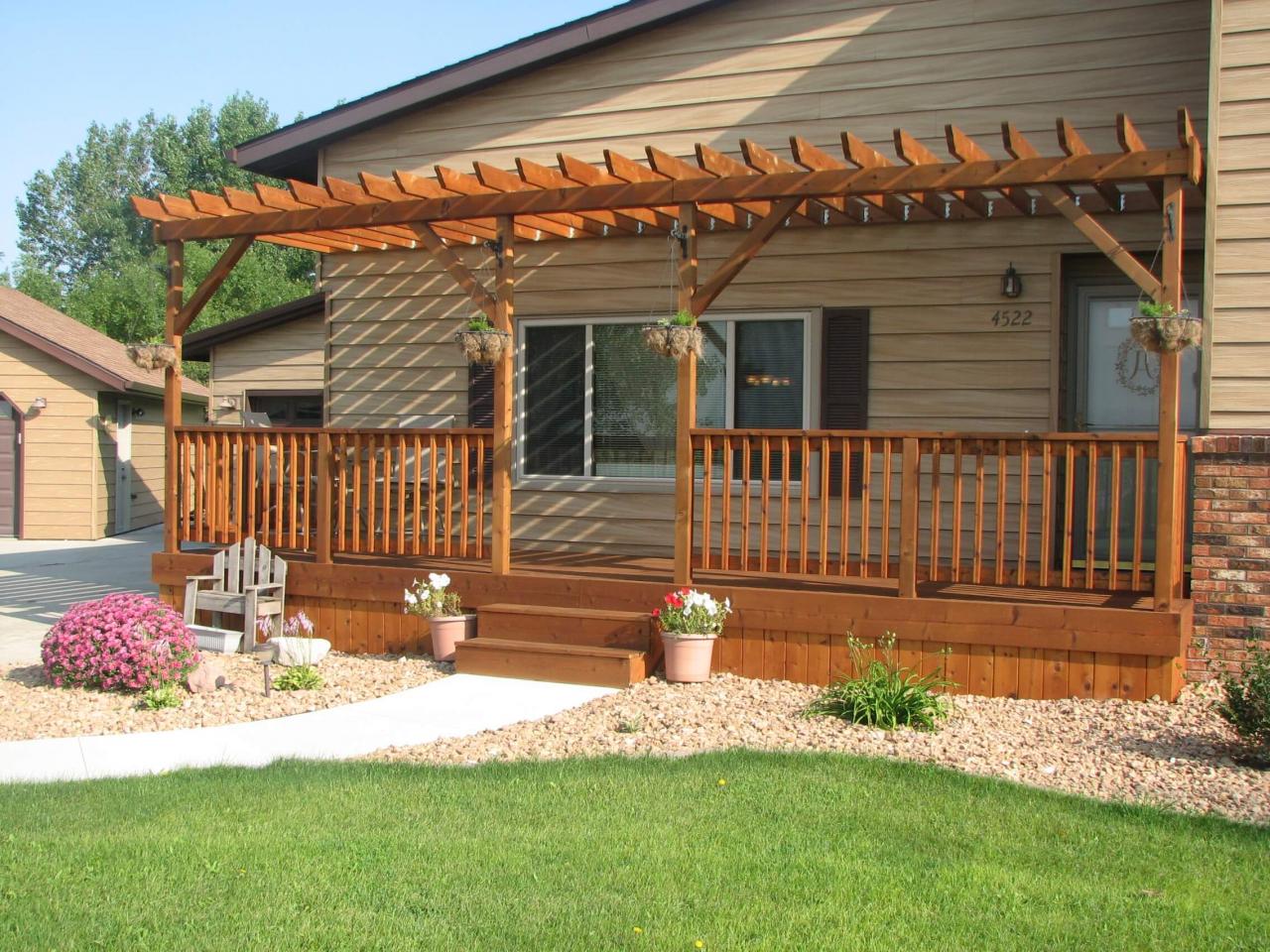
Source: thearchitecturedesigns.com
Proper lighting enhances both the aesthetics and functionality of a porch. Consider various options to create the desired ambiance.
- Pendant Lights: Elegant and stylish, pendant lights provide ambient lighting and can be customized to match the porch’s style.
- Wall Sconces: Wall-mounted sconces offer soft, task-oriented lighting and add a touch of elegance.
- Post Lights: Post lights illuminate pathways and provide safety, particularly useful for larger porches.
- String Lights: Casual and charming, string lights create a warm and inviting atmosphere, ideal for evening gatherings.
Porch Size & Functionality
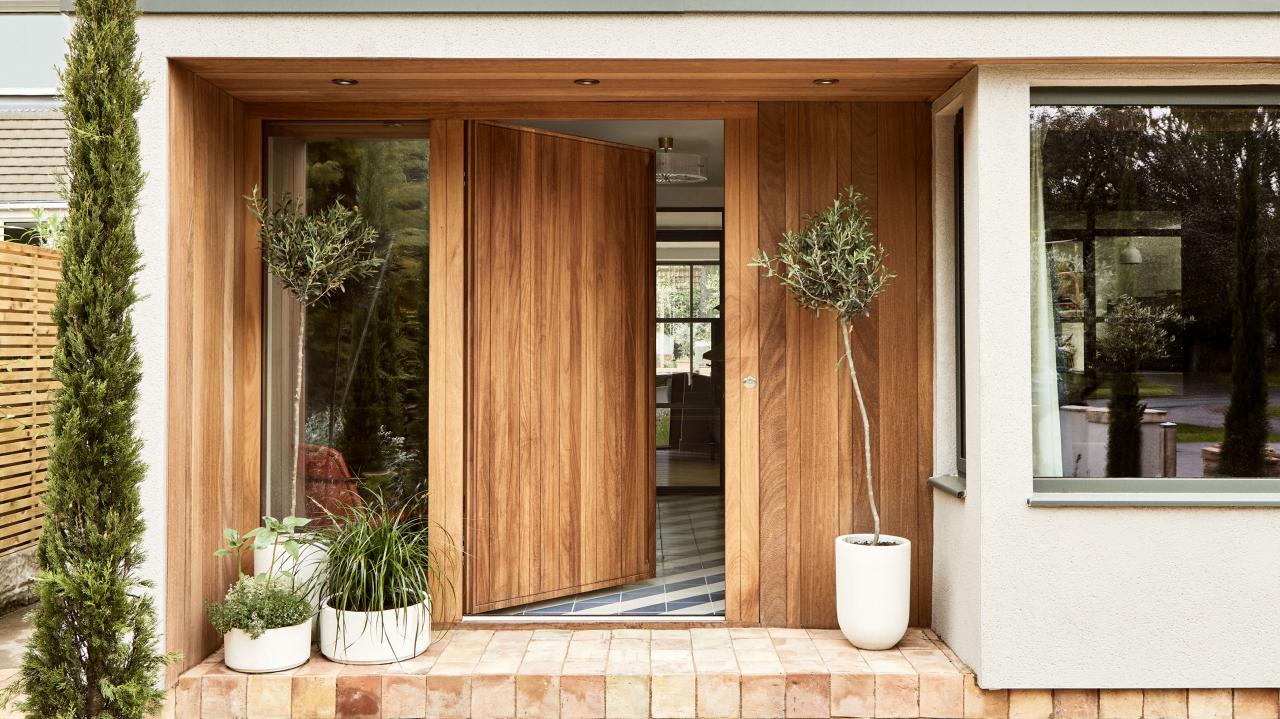
Source: futurecdn.net
Designing a functional porch requires careful consideration of size, layout, and the incorporation of various elements to maximize its usability. This section explores ideal dimensions, layout planning, and the advantages and disadvantages of covered versus uncovered porches.
Ideal Porch Dimensions
Porch dimensions should be proportionate to the house size and the family’s needs. A small porch might suffice for a cozy seating area, while a larger home might benefit from a spacious porch for entertaining.
- Small House (under 1500 sq ft): A 6ft x 8ft porch provides ample space for a couple of chairs and a small table.
- Medium House (1500-2500 sq ft): An 8ft x 12ft porch offers more space for seating, a swing, and perhaps a small storage area.
- Large House (over 2500 sq ft): A 12ft x 16ft or larger porch allows for extensive seating, dining areas, and additional features.
Porch Layout Design
A well-designed porch layout maximizes space and functionality. Consider incorporating different zones for various activities.
| Area | Dimensions (example) | Purpose |
|---|---|---|
| Seating Area | 6ft x 8ft | Relaxation, conversation |
| Dining Area | 4ft x 6ft | Outdoor dining |
| Storage Area | 2ft x 4ft | Storing cushions, plants |
Covered vs. Uncovered Porches
Both covered and uncovered porches offer unique advantages and disadvantages.
- Covered Porches: Offer protection from sun and rain, extending the usability throughout various weather conditions. However, they can feel less airy and may require more complex construction.
- Uncovered Porches: Offer more openness and sunlight, creating a brighter and more airy space. However, they provide less protection from the elements and may limit usability during inclement weather.
Maximizing Porch Space
Creative design solutions can help maximize limited porch space. Consider using space-saving furniture, built-in storage, and vertical gardening to optimize the area.
- Folding furniture: Allows for flexible seating arrangements depending on the need.
- Vertical gardening: Uses wall space for plants, freeing up floor space.
- Built-in seating: Incorporates seating into the porch structure, saving space.
Porch Materials & Finishes
Selecting appropriate materials and finishes is crucial for a durable and aesthetically pleasing porch. This section explores various decking materials, paint colors, sustainable options, and the importance of proper sealing and maintenance.
Decking Material Comparison
The choice of decking material impacts durability, maintenance, and overall cost.
| Material | Durability | Maintenance | Cost |
|---|---|---|---|
| Wood | Moderate (depending on type) | High (staining, sealing) | Moderate to High |
| Composite | High | Low | High |
| Concrete | Very High | Low | Moderate to High |
Paint Colors & Finishes
Paint color and finish choices significantly influence the porch’s aesthetic. Consider the house style and surrounding environment when making these decisions.
- Neutral colors: Versatile and timeless, neutral colors complement most house styles.
- Bold colors: Can add a pop of personality and vibrancy.
- Semi-gloss or gloss finishes: Offer better protection from the elements.
Sustainable Materials
Using sustainable and eco-friendly materials reduces the environmental impact of porch construction. Consider recycled wood, bamboo, or sustainably harvested lumber.
Sealing and Maintenance
Regular sealing and maintenance protect porch materials from the elements, extending their lifespan and preserving their appearance. Follow the manufacturer’s recommendations for specific materials.
Porch Furniture & Accessories
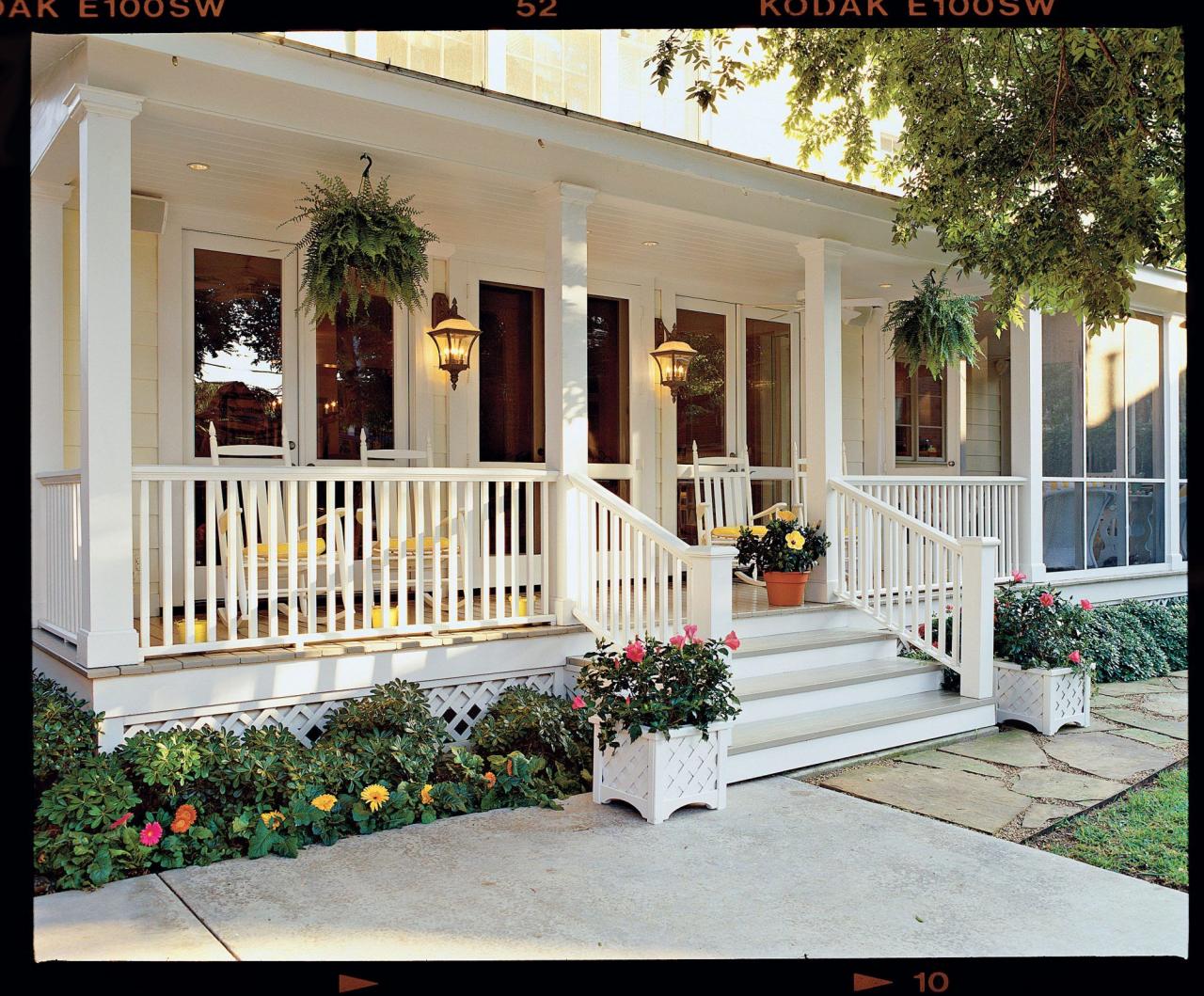
Source: pinimg.com
Furnishing a porch involves selecting comfortable, durable, and stylish furniture and accessories to create a welcoming and inviting space. This section explores seating arrangements, outdoor rugs, cushions, plants, and weather-resistant furniture choices.
Cozy Porch Seating Arrangement
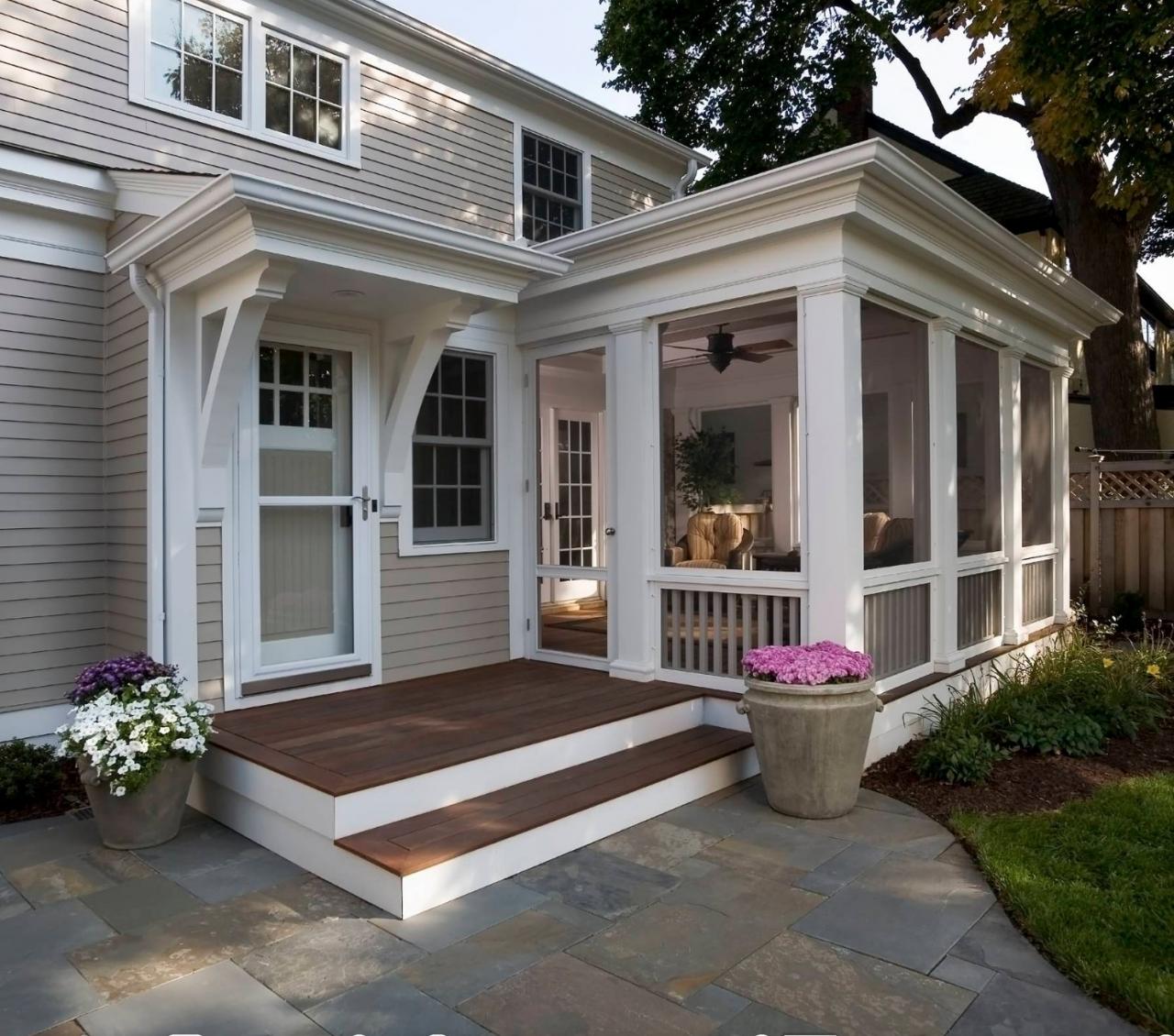
Source: randolphsunoco.com
A well-designed seating arrangement encourages relaxation and social interaction. Consider a combination of seating options to accommodate different needs.
- Swing: A classic porch addition, offering a relaxing spot for one or two people.
- Comfortable armchairs: Provide ample seating for guests.
- Small coffee table: Offers a surface for drinks and snacks.
Outdoor Rugs, Cushions, and Accessories
Outdoor rugs, cushions, and accessories add comfort, style, and personality to the porch. Choose weather-resistant materials that can withstand the elements.
Incorporating Plants and Flowers
Plants and flowers add life and vibrancy to the porch, creating a visually appealing outdoor garden. Choose plants that thrive in the local climate and require minimal maintenance.
Choosing Durable and Weather-Resistant Furniture
Outdoor furniture should be durable enough to withstand the elements. Consider materials like teak, wicker, or powder-coated aluminum for longevity.
Porch Safety & Accessibility
Prioritizing safety and accessibility during porch design and construction is essential for all ages and abilities. This section highlights safety features, potential hazards, and relevant building codes.
Safety and Accessibility Features
Incorporate features that enhance safety and accessibility, such as ramps for wheelchair access, handrails for stability, and adequate lighting for visibility.
Potential Safety Hazards and Solutions
Identify and address potential hazards such as uneven surfaces, loose railings, and inadequate lighting to prevent accidents.
Importance of Lighting and Handrails
Proper lighting and handrails are crucial for safety, especially at night or for individuals with mobility challenges.
Building Codes and Regulations
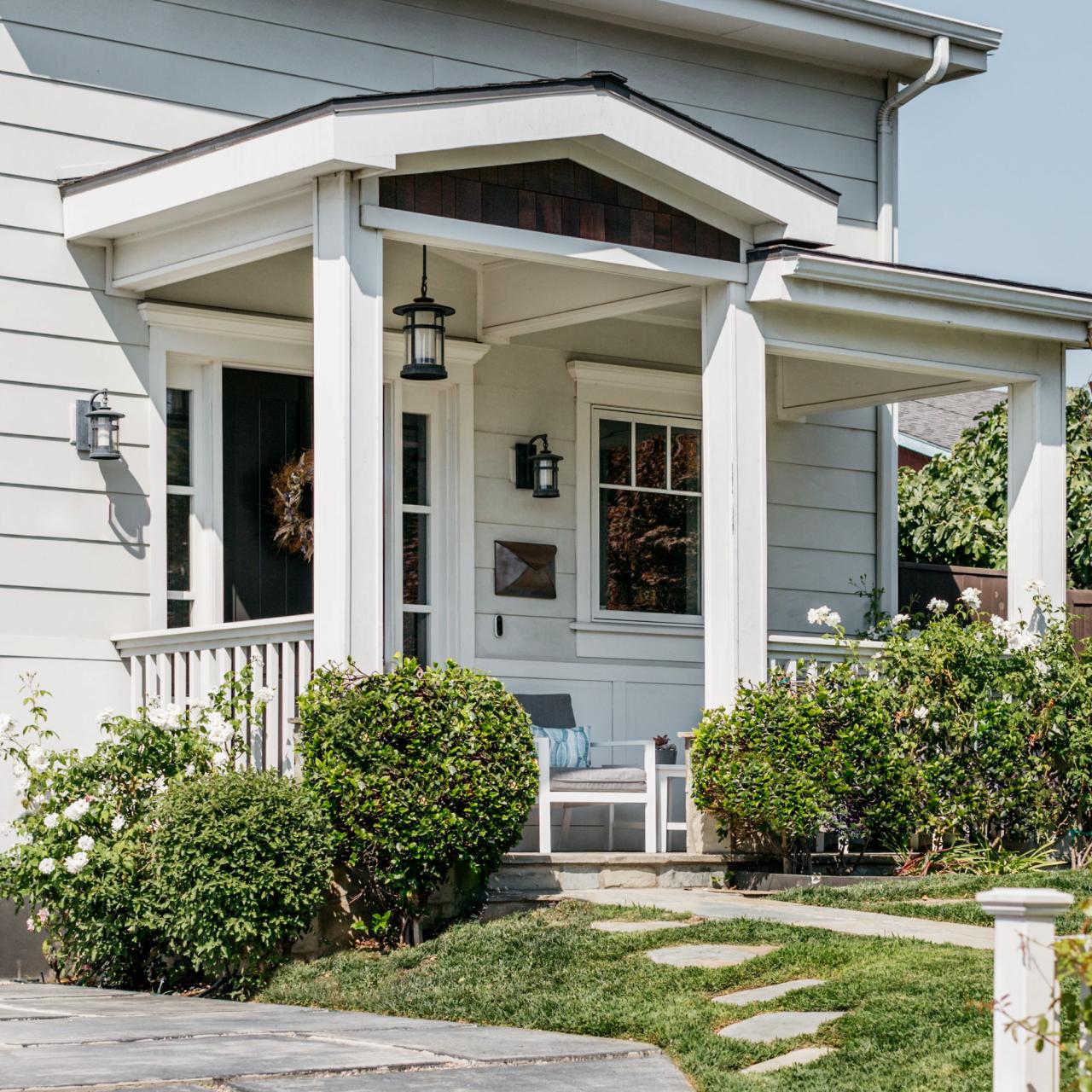
Source: foyr.com
Adhere to local building codes and regulations related to porch design and construction to ensure safety and compliance.
Illustrative Porch Designs
This section provides detailed descriptions of three distinct porch designs: Victorian, Modern Minimalist, and Rustic Farmhouse.
Victorian-Style Porch
A Victorian-style porch evokes a sense of grandeur and elegance. Imagine intricate woodwork, turned spindles, decorative brackets, and a wide overhang supported by ornate columns. The flooring might be wide, stained wood planks. Comfortable wicker furniture with plush cushions, perhaps a rocking chair and a small settee, would complement the style. The overall atmosphere is one of refined elegance and romantic charm.
Modern Minimalist Porch
A modern minimalist porch emphasizes clean lines and simple materials. Imagine a concrete or composite deck, sleek metal railings, and simple, functional furniture. The color palette would likely be neutral, with perhaps a pop of color from carefully selected plants in minimalist planters. The atmosphere is one of calm, sophistication, and understated elegance.
Rustic Farmhouse Porch
A rustic farmhouse porch exudes warmth and comfort. Imagine wide, weathered wood planks, simple railings, and comfortable furniture such as Adirondack chairs and a wooden bench. The color palette would likely be natural and earthy, with perhaps a touch of white or cream. Potted plants, flowers, and perhaps a rustic-style rug complete the scene. The overall atmosphere is one of casual comfort and relaxed charm.
FAQ Overview
What are some low-maintenance porch flooring options?
Composite decking and concrete are excellent low-maintenance choices. They require less upkeep than wood and are resistant to rot and insect damage.
How can I make my porch more energy-efficient?
Consider using energy-efficient lighting such as LED bulbs. Adding awnings or retractable shades can help reduce heat gain on sunny days.
What permits are typically needed for porch construction?
Building permits are usually required for any significant porch additions or modifications. Check with your local building department for specific regulations in your area.
How do I choose the right porch size for my home?
Consider the size of your house and the intended use of your porch. A small porch might suffice for a quiet seating area, while a larger one is ideal for entertaining.
What are some creative ways to add privacy to my porch?
Consider planting climbing vines, installing lattice screens, or using outdoor curtains to enhance privacy.
